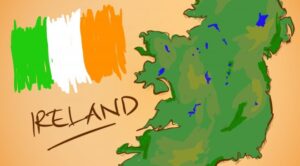Key Moments:
- Labour conference delegates gathered in Liverpool to vote on which policy motions will be prioritized for debate.
- Proposed motions address issues such as higher taxation on gambling companies and a call for a widespread ban on gambling advertising.
- Voting determines seven key subjects, which will then undergo further discussion before final votes are cast during the conference.
Delegates Consider New Approaches to Gambling Industry Regulation
At the Labour Party conference in Liverpool, delegates have begun deliberations over a broad slate of policy motions, including proposals that would directly impact the gambling sector. Among the motions are calls for a higher tax rate on major gambling operators, a measure supporters argue could be used to offset the costs associated with eliminating the two-child benefit cap. Additionally, some constituency parties have recommended an eight percent levy on the profits of commercial banks as an added funding source.
One motion, put forth by the Richmond and Northallerton Constituency Labour Party (CLP), advocates for “urgent action to ban gambling advertising,” seeking to align gambling promotion rules with those applied to tobacco products.
Conference Decision-Making Process
The conference voting process runs between 10am and 2pm, during which delegates select seven topics that will take priority for debate. Once these subjects are chosen, all related motions are subsequently reviewed at a compositing meeting, where delegates agree on the final wording for motions that the conference will ultimately vote on.
Several trade unions have put forward their own motions as well. Unite includes proposals focusing on a wealth tax and strengthening the windfall tax on energy companies, while the TSSA union advocates for nationalizing train operating companies and reversing existing austerity measures.
Main Areas of Focus
Beyond gambling, the range of motions encompasses topics such as animal welfare, taxation, public spending, NHS dentistry, Leveson Inquiry reforms, and more. Delegates will also consider calls to withdraw the ‘right to buy’ policy and implement new council housing strategies, as well as proposals for reforms in British press regulation.
Topics on the Conference Priorities Ballot
| # | Subject |
|---|---|
| 1 | Animal welfare |
| 2 | HR policies |
| 3 | High streets |
| 4 | IPP sentences |
| 5 | Cleaning up our communities |
| 6 | School absenteeism |
| 7 | Skills |
| 8 | Travel |
| 9 | NHS dentistry |
| 10 | Gambling |
| 11 | Violence against women and girls, misogyny and domestic abuse |
| 12 | Wild camping |
| 13 | Water |
| 14 | Local government |
| 15 | Furniture poverty |
| 16 | Menopause |
| 17 | AI and our rights |
| 18 | Guaranteed hours |
| 19 | Subsidiary companies and insourcing |
| 20 | British values |
| 21 | Industrial energy prices |
| 22 | Public sector workers |
| 23 | Staffing in adult social care |
| 24 | Urban planning |
| 25 | Public spending |
| 26 | Hillsborough |
| 27 | Community energy |
| 28 | Corporate structures |
| 29 | Postgraduate medical training |
| 30 | Small business |
| 31 | Taxation |
| 32 | Rural and coastal communities |
| 33 | End of life care |
| 34 | Leveson |
| 35 | Disabled accessible housing |
| 36 | Financial education |
| 37 | Tourism and local economy |
| 38 | Orgreave |
| 39 | Right to buy |
| 40 | Child maintenance |
| 41 | Supporting families |
| 42 | Children in care and care experienced people |
| 43 | Equality Act |
| 44 | Digital inclusion |
| 45 | Skilled worker visas |
| 46 | Higher education |
- Author


